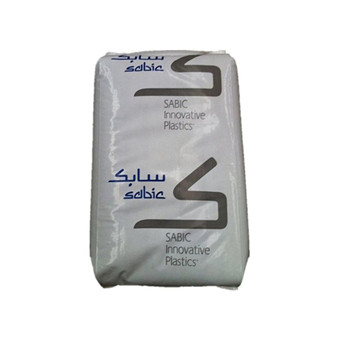
PC LEXAN™ 943A-116 SABIC INNOVATIVE CHONGQING
289
- Unit Price:US$ 2,825 /MT
- Packaging Specification:25 KG/PKG
- Packaging Material:Paper bag
- Supply Quantity:55MT
- Delivery Terms:FOB
- Port of Loading :China Main Port
- Accepted Payment Methods:T/T
- Shipping:Negotiate supplier for shipping details
Supplier Information
ASIA PLASTIC EXCHANGE LIMITED
+86 755 ********View
serv********View
+86 ********View
For more details, please contact the supplier!
Material Description
- Material Properties:--
- Application Areas:--
- Color:--
- Grade:Injection grade
Technical Data Sheet
| impact performance | Test Condition | Test Method | Test Result |
|---|---|---|---|
| Suspended wall beam without notch impact strength | 23°C | ISO 180/1U | NoBreak |
| Dart impact | 23°C,TotalEnergy | ASTM D3763 | 50.0 J |
| Charpy Notched Impact Strength | -30°C | ISO 179/1eA | 60 kJ/m² |
| 23°C | ISO 179/1eA | 75 kJ/m² | |
| Impact strength of simply supported beam without notch | -30°C | ISO 179/1eU | NoBreak |
| 23°C | ISO 179/1eU | NoBreak | |
| Impact strength of cantilever beam gap | -30°C | ISO 180/1A | 50 kJ/m² |
| 23°C | ISO 180/1A | 70 kJ/m² | |
| Suspended wall beam without notch impact strength | -30°C | ISO 180/1U | NoBreak |
| flammability | Test Condition | Test Method | Test Result |
|---|---|---|---|
| UL flame retardant rating | 1.5mm | UL 94 | V-0 |
| 3.0mm | UL 94 | 5VA | |
| Burning wire flammability index | 1.0mm | IEC 60695-2-12 | 960 °C |
| Hot filament ignition temperature | 1.0mm | IEC 60695-2-13 | 825 °C |
| mechanical properties | Test Condition | Test Method | Test Result |
|---|---|---|---|
| tensile strength | Yield | ISO 527-2/50 | 55.0 Mpa |
| Break | ASTM D638 | 60.0 Mpa | |
| Break | ISO 527-2/50 | 60.0 Mpa | |
| elongation | Yield | ASTM D638 | 6.0 % |
| Tensile strain | Yield | ISO 527-2/50 | 6.0 % |
| elongation | Break | ASTM D638 | 130 % |
| Tensile strain | Break | ISO 527-2/50 | 130 % |
| Bending modulus | 50.0mmSpan | ASTM D790 | 2060 Mpa |
| ISO 178 | 2200 Mpa | ||
| bending strength | ISO 178 | 85.0 Mpa | |
| Tensile modulus | ASTM D638 | 2100 Mpa | |
| ISO 527-2/1 | 2100 Mpa | ||
| tensile strength | Yield | ASTM D638 | 58.0 Mpa |
| bending strength | Yield,50.0mmSpan | ASTM D790 | 89.0 Mpa |
| thermal performance | Test Condition | Test Method | Test Result |
|---|---|---|---|
| Hot deformation temperature | 0.45MPa,Unannealed,3.20mm | ASTM D648 | 135 °C |
| 1.8MPa,Unannealed,3.20mm | ASTM D648 | 120 °C | |
| Vicat softening temperature | ASTM D15259 | 140 °C | |
| ISO 306/B120 | 140 °C | ||
| Ball Pressure Test | 125°C | IEC 60695-10-2 | Pass |
| Linear coefficient of thermal expansion | MD:-40to40°C | ASTME831 | 6.5E-05 cm/cm/°C |
| MD:23to80°C | ISO 11359-2 | 7.2E-05 cm/cm/°C | |
| TD:-40to40°C | ASTME831 | 6.5E-05 cm/cm/°C | |
| TD:23to80°C | ISO 11359-2 | 7.7E-05 cm/cm/°C | |
| RTI Elec | UL 746 | 125 °C | |
| RTI Imp | UL 746 | 115 °C | |
| RTI Str | UL 746 | 120 °C |
| Physical properties | Test Condition | Test Method | Test Result |
|---|---|---|---|
| melt mass-flow rate | 300°C/1.2kg | ASTM D1238 | 10 g/10min |
| Melt Volume Flow Rate (MVR) | 300°C/1.2kg | ISO 1133 | 9.00 cm3/10min |
| Shrinkage rate | MD:3.20mm | Internal Method | 0.40-0.80 % |
| TD:3.20mm | Internal Method | 0.40-0.80 % | |
| Water absorption rate | Saturation,23°C | ISO 62 | 0.35 % |
| Equilibrium,23°C,50%RH | ISO 62 | 0.15 % |
| Electrical performance | Test Condition | Test Method | Test Result |
|---|---|---|---|
| Dielectric strength | 3.20mm,inOil | ASTM D149 | 17 KV/mm |
| 3.20mm,in Oil | IEC 60243-1 | 16 KV/mm | |
| Dielectric constant | 50Hz | ASTM D150 | 2.95 |
| 60Hz | ASTM D150 | 2.95 | |
| 1MHz | ASTM D150 | 2.90 | |
| Dissipation factor | 50Hz | ASTM D150 | 2.4E-03 |
| 60Hz | ASTM D150 | 2.4E-03 | |
| 1MHz | ASTM D150 | 8.5E-03 | |
| Compared to the anti leakage trace index | CTI | UL 746 | PLC 3 |
| IEC 60112 | V | ||
| High arc combustion index | HAI | UL 746 | PLC 0 |
| Hot wire ignition | HWI | UL 746 | PLC 1 |
IMPORTANT NOTES: Plas.com collected the data in the data sheet from the material manufacturers. Plas.com makes the best effort to improve the accuracy of the data, but has no responsibility for the data. We strongly recommend verifying the validity of the data with the material manufacturers before making a final decision.